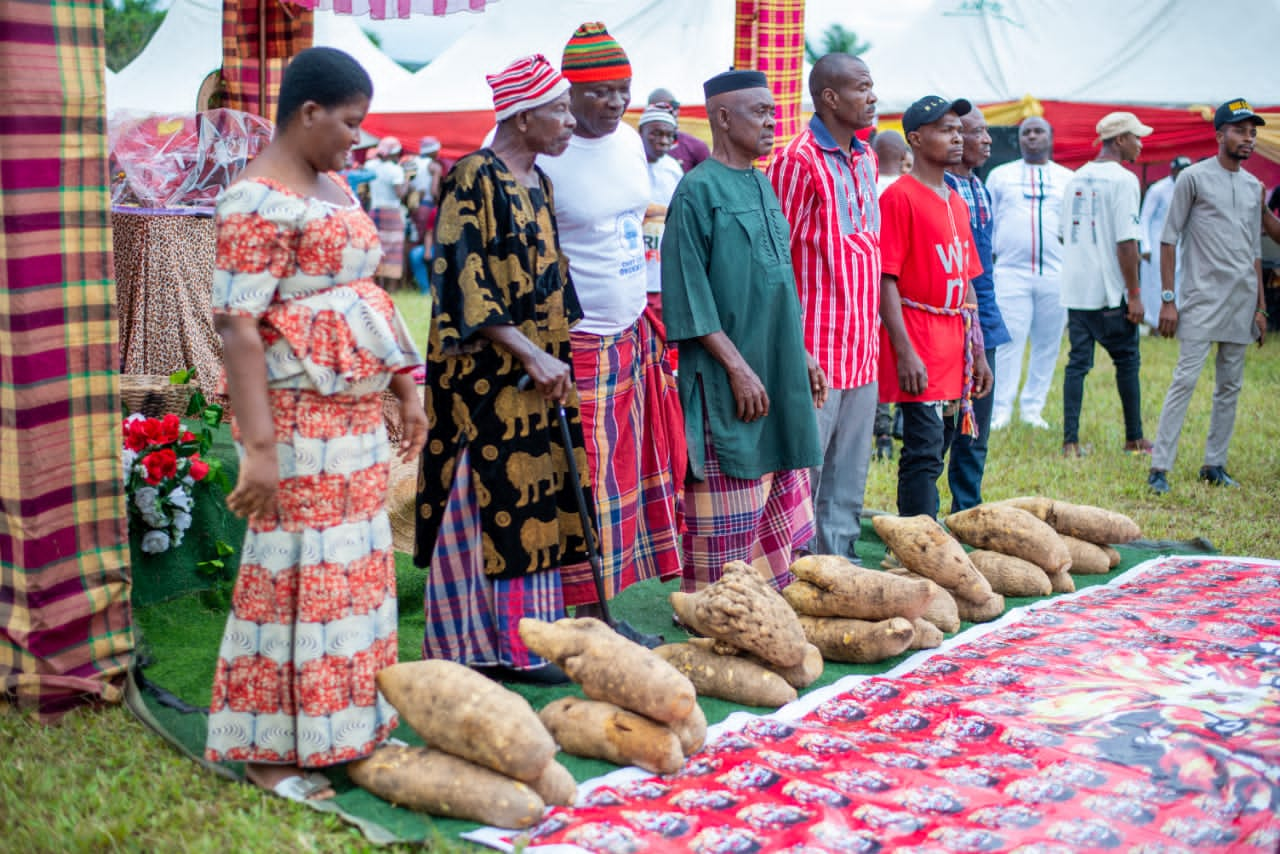
Benin is alive with festivities this August 15 as towns across central and northern regions, including Savalou, Bassila, and Dassa-Zoumè, celebrate the annual yam festival, a vibrant tribute to both agricultural heritage and community identity.
More than a harvest celebration, the festival—sometimes called the “festival of first fruits”—honours the earth and marks the official start of the yam consumption season.
Traditionally observed by the Idaatcha, Mahi, Nago, Ifè, and Fon peoples, it signals the end of the lean season and forbids consumption of newly harvested yams until the ritual ceremonies are complete.
The festivities open with elaborate offerings to earth deities, libations, and traditional dances, accompanied by songs celebrating fertility and prosperity. Local dignitaries and chiefs, adorned in resplendent attire, receive the first blessed yams, which are then shared with the wider community.
Beyond its spiritual significance, the festival serves as a hub for social gatherings and cultural exchange. Markets and public squares brim with artisans, musicians, dancers, and traders from across Benin and the diaspora.
Visitors can enjoy a culinary journey through local yam preparations—pounded (known as Agoun), boiled, or fried—showcasing the country’s rich gastronomy.
In recent years, authorities have actively promoted the yam festival as a major tourist attraction. Hotels in Savalou, Dassa, and Bassila report full bookings, while travel agencies incorporate festival visits into cultural tours.
According to the National Tourism Office, the 2024 edition drew over 15,000 domestic and international visitors, generating substantial economic benefits for local businesses, with 2025 projections showing further growth.
While modernization attracts tourism, guardians of tradition caution against excessive folklorization that could dilute the festival’s sacred meaning.
Local authorities are seeking a balance between preserving rituals and offering visitor-friendly experiences.
The yam festival stands as a testament to Benin’s enduring cultural heritage, blending spirituality, gastronomy, and community life.
In Savalou and beyond, it embodies the synergy between ancestral traditions and contemporary development, positioning the festival as one of West Africa’s most promising cultural events.



